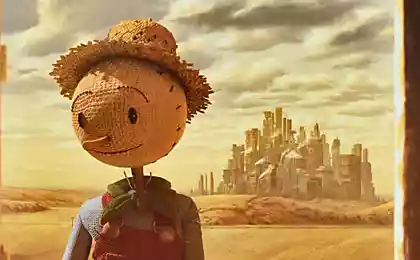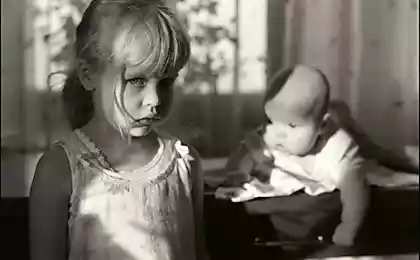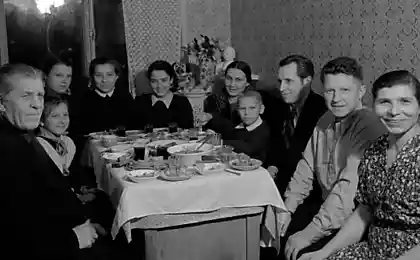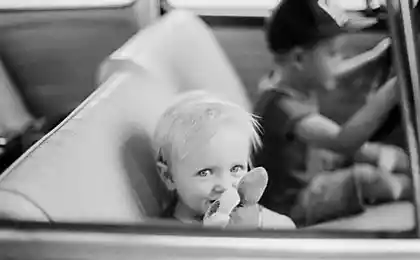243
Why children should not be forced to share toys
I love myself, but with a strange love. I will give everything to everyone, I will not leave anything to myself - that is what gives me the highest pleasure. It seems to be a bit the opposite. But it turns out that such deformation occurs in childhood. Parents, we, society as a whole influence this. Love and poverty - that's what it's called.

Editorial "Site" I'm sure poverty is programmed. Let's take a simple example. Imagine that you are on the playground and observe a quite ordinary picture: the children tinkering in the sandbox, each has its own toy, but one of the girls has something bright, new, attracting attention. So one of the kids comes up to her and says, “Let’s play!”
This toy was given to the girl by her father, who came on a short vacation, for her it is a value. It’s like a gold watch or an expensive phone. She has no desire to share her value with anyone. She moves away from the boy, it's normal. reaction. It seems that everything is clear, they will figure it out.
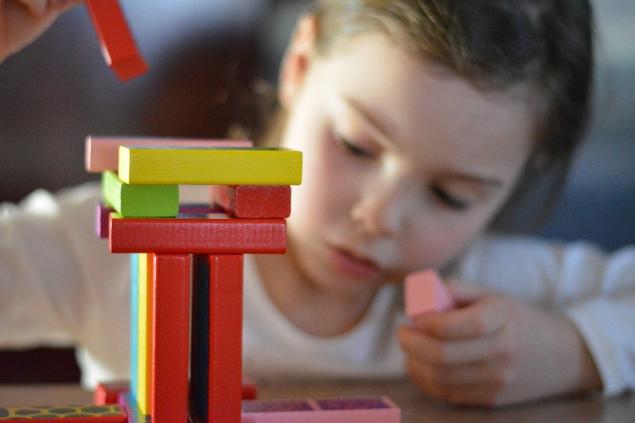
But here comes the girl's mother. Just humanly, because she was taught so herself, she says to her daughter, they say, share, be good, everyone will love you. Because you're not greedy. This is what this program looks like. An adult mother may not realize the importance of this toy, it does not seem to her value. There is nothing wrong with another child playing it.
Do you remember your own childhood a little bit? Remember the emotion of going outside with a cool new toy that no one else has? Yes, this is self-affirmation, because in the next life you need to take your place in the social hierarchy. And you do it with the help of these “values”.
And someone else wants that kind of value, that kind of normal desire. And an authoritative person for you says, say, share. So you will be good, so you will be loved. And in adulthood, you'll give up your place on the social ladder because that's how you've been taught. I'll stay downstairs, but let them love me.
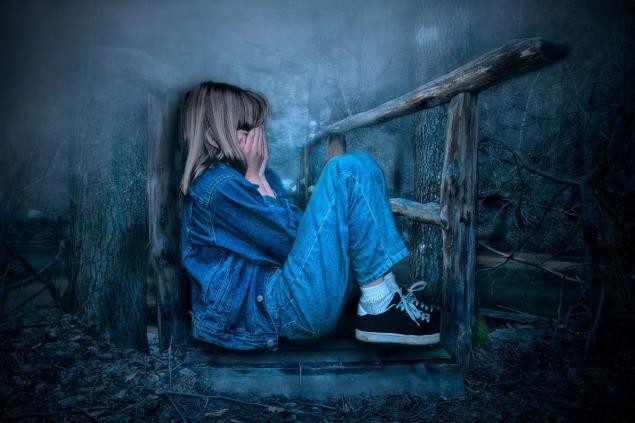
Thirty years later, a sandbox girl who shared a toy with others grew up. Instead of enjoying what is valuable to her, she gives it to others. Because that is the only way she will enjoy life. This stereotype is embedded in the sandbox and projected into adulthood.
She gives everything: raises children, helps parents, even her husband sometimes supports, because he lost his job and now lies on the couch. I think it's that boy. She doesn't seem to notice all this. Myself? Are you? All to you, my loved ones, so I will be good and you will love me. Poverty? Everyone's alive and well.
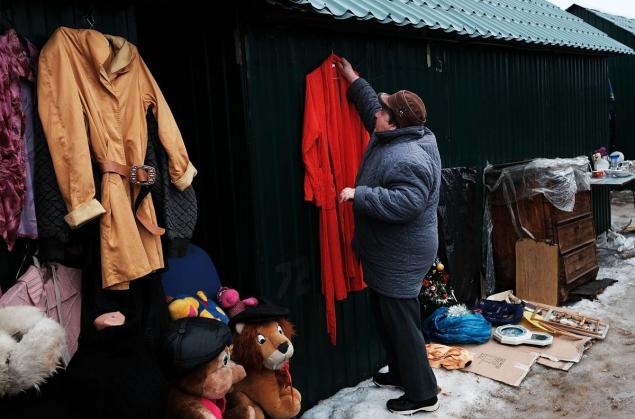
Now imagine someone asking you to share a new iPhone or coat. Or you bought a bag and then a friend asks you to “fly” for three weeks. No, of course you can, but wouldn't that be a strange request? Something tells us a girlfriend will be politely sent to a known address. Maybe it's rude. The bag doesn't feel like you're getting tired.
Parents in childhood are people who influence the rest of life in one way or another. You should think ten times about how your child will perceive your words and how he will have to live with it. It is better to think about the scenario immediately, so as not to later recognize yourself in such situations.
Editorial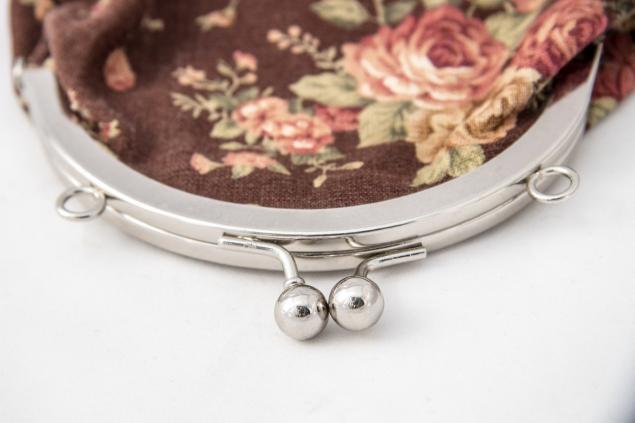
This does not mean that children should be banned from sharing toys. This is just one example of programming for poverty. You are not able to accumulate anything, to enjoy the result, to appreciate the value - you need to give everything to others to be loved. Write in the comments what you think about this and what other “programs” you know.
Love and poverty The concepts seem to be quite compatible. Sometimes you have to tell yourself that I deserve better. The first step to a harmonious and full life is to share that toy with yourself. Here's a story about how a rich childhood can reverberate in the future. Thank you for staying with us!

Editorial "Site" I'm sure poverty is programmed. Let's take a simple example. Imagine that you are on the playground and observe a quite ordinary picture: the children tinkering in the sandbox, each has its own toy, but one of the girls has something bright, new, attracting attention. So one of the kids comes up to her and says, “Let’s play!”
This toy was given to the girl by her father, who came on a short vacation, for her it is a value. It’s like a gold watch or an expensive phone. She has no desire to share her value with anyone. She moves away from the boy, it's normal. reaction. It seems that everything is clear, they will figure it out.

But here comes the girl's mother. Just humanly, because she was taught so herself, she says to her daughter, they say, share, be good, everyone will love you. Because you're not greedy. This is what this program looks like. An adult mother may not realize the importance of this toy, it does not seem to her value. There is nothing wrong with another child playing it.
Do you remember your own childhood a little bit? Remember the emotion of going outside with a cool new toy that no one else has? Yes, this is self-affirmation, because in the next life you need to take your place in the social hierarchy. And you do it with the help of these “values”.
And someone else wants that kind of value, that kind of normal desire. And an authoritative person for you says, say, share. So you will be good, so you will be loved. And in adulthood, you'll give up your place on the social ladder because that's how you've been taught. I'll stay downstairs, but let them love me.

Thirty years later, a sandbox girl who shared a toy with others grew up. Instead of enjoying what is valuable to her, she gives it to others. Because that is the only way she will enjoy life. This stereotype is embedded in the sandbox and projected into adulthood.
She gives everything: raises children, helps parents, even her husband sometimes supports, because he lost his job and now lies on the couch. I think it's that boy. She doesn't seem to notice all this. Myself? Are you? All to you, my loved ones, so I will be good and you will love me. Poverty? Everyone's alive and well.

Now imagine someone asking you to share a new iPhone or coat. Or you bought a bag and then a friend asks you to “fly” for three weeks. No, of course you can, but wouldn't that be a strange request? Something tells us a girlfriend will be politely sent to a known address. Maybe it's rude. The bag doesn't feel like you're getting tired.
Parents in childhood are people who influence the rest of life in one way or another. You should think ten times about how your child will perceive your words and how he will have to live with it. It is better to think about the scenario immediately, so as not to later recognize yourself in such situations.
Editorial

This does not mean that children should be banned from sharing toys. This is just one example of programming for poverty. You are not able to accumulate anything, to enjoy the result, to appreciate the value - you need to give everything to others to be loved. Write in the comments what you think about this and what other “programs” you know.
Love and poverty The concepts seem to be quite compatible. Sometimes you have to tell yourself that I deserve better. The first step to a harmonious and full life is to share that toy with yourself. Here's a story about how a rich childhood can reverberate in the future. Thank you for staying with us!
Why Kim Ki-duk was respected and loved in Russia
Recipe of the Transcarpathian Bogarach for the coum who bought a new Kazan for the New Year














